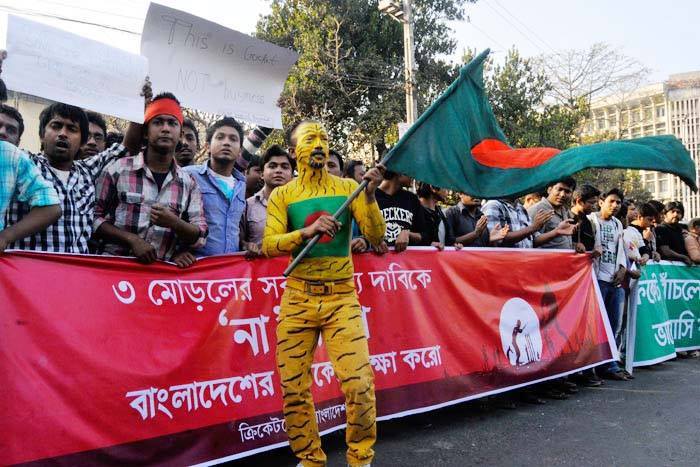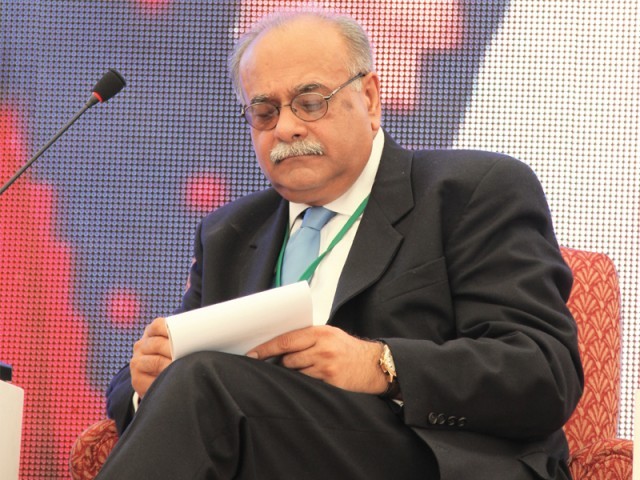Since Bangladesh’s independence from Pakistan, this is perhaps the very first time that the two nations are stood in congruence against the monopolising efforts of the cricketing boards of India, England and Australia. Such unwelcome is the new Big 3 proposal that the sidelined nations have joined forces to reject, resist and defy its implementation. In this article, we explore the many consequences and repercussions that could come the way of cricket in Pakistan if the proposal is accepted.
So, what’s this hullabaloo about the ‘Big Three’?
On 9 January 2014, International Cricket Council (ICC) heads had a closed-door meeting with the boards of three cricketing nations, namely Cricket Australia (CA; Australia’s cricket board), England Cricket Board (ECB; England’s board) and Board of Control of Cricket in Indian (BCCI; India’s board) – the ‘big three’. These three nations put forth a proposal that asked for the revamp of the way ICC itself was managed. They were adamant at reminding the ICC that a vast majority of the revenue generated for the ICC was in fact funnelled in through their cricketing efforts and that they should be given a governing oversight over the many issues and decisions in ICC. In essence, they were asking for a ‘veto’ power over future ICC decisions. Cricket fans are disappointed all over the world.
In doing so, the democratic process within the ICC (i.e., one nation, one vote) would be severely undermined and would be slave to the wills of the ‘big three’. It is a mere fact that India, England and Australia are the highest revenue-generating nations for the ICC and certainly the richest boards but this private proposal was surely unfair and unjust. And, taking to the helms to reject this proposal were the boards of Pakistan (Pakistan Cricket Board; PCB), Bangladesh (Bangladesh Cricket Board; BCB) and West Indies (WICB; West Indies Cricket Board). Sri Lanka and South Africa were unconcerned at first but realised the consequences through effective lobbying by the PCB.
Drafting the proposal
Although the Big 3 proposal plan was eventually released as a ‘position paper’ to the remainder of the nations in the ICC, the secret behind-the-curtain talks between England, India and Australia had been going on for the past six months. Over the course of these six months, the three had been trying to pave way for opportunities and occasion to come their way so as to finally present this proposal with brute force.

Analysts have suggested that if the proposal went underway, it could spell the demise of cricket in Pakistan and would severely cripple the cricket boards in Bangladesh and West Indies. However, the real repercussions would be far worst than what is currently being stipulated.
Consequences and repercussions

The Big 3 proposal stands out as a witness to the ‘goonism’ by the cricketing boards of India, England and Australia. The three nations are adamant at taking over the ICC management. They are looking to assume a ‘veto’ power in the ICC so that they can pull the strings of international cricket. It would fall onto these three nations to decide where test matches would be held and where the T-20 or one-day series would be played. In fact, a large majority of the revenues generated from these future matches would go into the coffers of these three ‘richer’ cricket boards.
If the proposal is implemented, the remaining member-nations of the ICC could face losses of up to 1.2 million dollars. The proposal only aims to benefit the ‘big three’ nations as the proposal stipulates that future matches from 2015—2013 would only be played in India, England and Australia which angers the cricket boards in Pakistan, Sri Lanka, Bangladesh and South Africa.
South Africa went as far as to state that the proposal was fundamentally flawed and expressed concerns when BCB and PCB started lobbying for dissent. Former president of the ICC, Pakistan’s Ehsan Mani said, “The ‘goonish’ behaviour of the ‘richer’ boards would not be tolerated in the ICC and power can never be given in their arms.”
Pakistan’s defiance

Najam Sethi talked in the 27 January 2014 episode of the Geo TV show Aapas Ki Baat revealing some of the debates that underwent in the ICC sessions on 9 January. Many a cricket fan were left disappointed and shocked at why Sethi didn’t bring up these issues beforehand. It was only after BCB’s refusal that the PCB chairman Zaka Ashraf started taking notice of the issue.
Some even went as far as to suggest that if Najam Sethi would have remained the head and chairman of the PCB, he would surely have given into the demands of the BCCI.
India’s incentives
Amongst the revelations by Sethi were the various incentives that BCCI was willing to present PCB regarding the issue. India has always denied Pakistan’s request to play with them on neutral grounds. Pakistan has been using grounds in UAE as their home grounds following the insecurity in the nation and although the grounds in UAE are pretty safe, India has always shrugged off offers to play Pakistan there.
However, in order to have Pakistan on-board with their stance on the ‘big three’ issue, India pronounced that it would be willing to play Pakistan in UAE — but only if Pakistan supports the proposal. Similar incentives were provided to the BCB and the SLB.
Former cricketer Sarfaraz Nawaz expressed concerns by saying, “India cannot be trusted in this matter as they can always deny Pakistan’s requests again. If Pakistan thinks of supporting BCCI’s position, it would spell the demise of cricket in Pakistan.”
Big 3 versus the Brave 4
PCB chairman Zaka Ashraf openly defied the Big 3 proposal in the ICC meeting on 28 January 2014 and his effective lobbying amongst the boards of South Africa, Sri Lanka and Bangladesh proved fruitful when the four nations resisted the proposal. Such heroic an endeavour was Ashraf’s stance that the collaboration of the four nations against the ‘big three’ was affectionately named the ‘brave four’.
Following the meeting of the ICC members, the proposal was deferred. However, deferral doesn’t always mean that the matter is laid to result. It is just delayed. We have asked our followers on Twitter and Facebook to start voicing their concerns vocally so as to put a final stop to this monopolising effort by India, England and Australia. Are you with us?